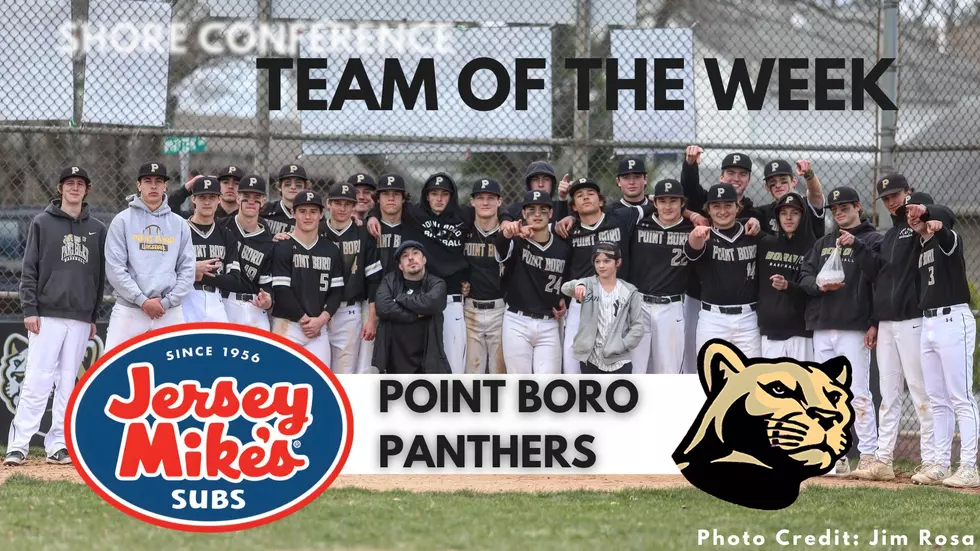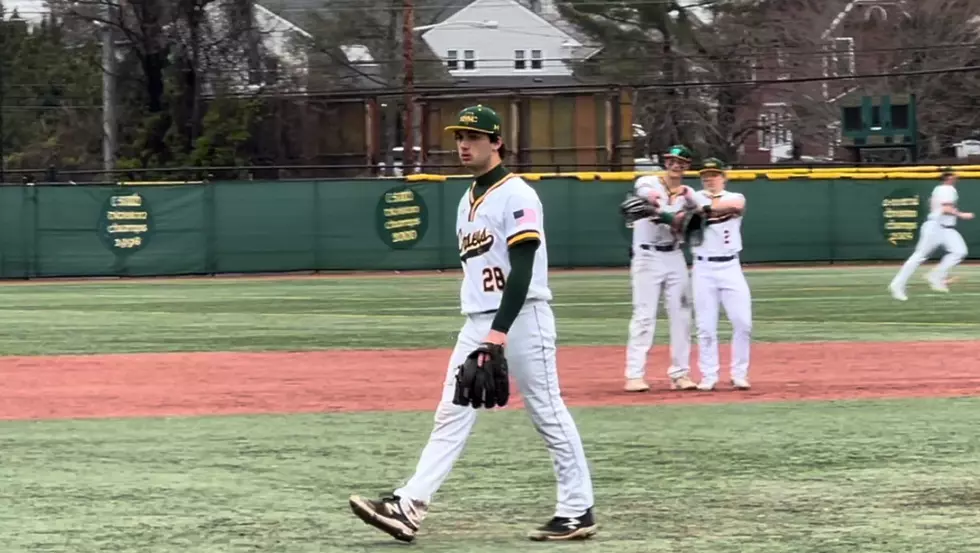
Gov. Christie Pocket Vetoes Bill That Would Have Allowed Unregulated Merging of District Teams
In a surprising turn of events, Gov. Chris Christie, on his final day in office, has pocket vetoed legislation that was set to allow public school districts around New Jersey to merge varsity programs with no oversight from the New Jersey State Interscholastic Athletic Association.
The bill has been placed on the Governor's "action not taken" list and, assuming the bill is not signed before Tuesday at noon, it would have to be completely reintroduced under Governor-elect Phil Murphy, who will be sworn into office Tuesday.
"I think common sense prevailed," Paul Anzano, legal counsel for the NJSIAA, told NJ.com. "These bills could have had so many unintended consequences that the Legislature didn't think about the impact it would have when putting this together. Is it a win? A little bit, but more so common sense just prevailed."
The NJSIAA chose not to comment until after Tuesday's deadline passes.
A week ago on Jan. 8, the state Senate and state Assembly passed Bills S2337 and A5254 by 24-10 and 52-14 margins, respectively, to allow public high schools of any size to merge varsity athletic programs within the same district due to low participation numbers, financial issues or safety concerns because of competitive disadvantage, and do so without any oversight from the New Jersey State Interscholastic Athletic Association.
The bills needed 21 votes in the Senate and 41 in the Assembly to pass. In December they unanimously passed both house committees.
The only remaining hurdle was the signature of Christie, which proponents of the bill did not express as being a potential issue. Unless Christie changes his mind his action, or lack thereof, provides a major victory for the NJSIAA.
West Windsor-Plainsboro superintendent David Aderhold has been publicly outspoken in his support for the bill and his disappointment with the NJSIAA and its stance against allowing district co-op program.
"We're clearly disappointed for our students," Aderhold said. "The reality is, this has always been bigger than football. And it had nothing to do with 'super teams.' It presented opportunities for students to play sports. But we're going to regroup and start again. This is clearly not going to be the end of this."
The bill is the first time the New Jersey government has interjected itself into high school sports to this degree, passing a law that directly impacts the NJSIAA bylaws.
“Unprecedented,” NJSIAA assistant director and former Southern Regional athletic director Kim DeGraw-Cole said.
The intention of the bill, which was authored by state Sen. Shirley Turner (D-Mercer) and Assemblyman Daniel Benson (D-Mercer), among others, is to avoid a situation similar to what happened in the West Windsor-Plainsboro School District this past football season. West Windsor-Plainsboro North was forced to suspend its varsity football program ahead of the 2017 season because of safety concerns and a declining roster. The school district attempted to merge the programs from WWPS and WWPN but its proposal was voted down by the West Jersey Football League, then the NJSIAA and finally by the New Jersey Department of Education.
NJSIAA bylaws previously prohibited Group III and larger schools from forming cooperative agreements and prohibited any co-ops in basketball, baseball, softball and outdoor track and field. In December, NJSIAA member schools approved a proposal from the West Windsor-Plainsboro School District that allowed larger schools to enter into co-op agreements for football under specific conditions. The proposal passed 179-115.
The new bills, however, allow school districts to merge programs in any sport without approval from their league or the NJSIAA, but opponents of the bill fear the lack of oversight will lead to districts consolidating programs and creating “super teams”.
Prior to the bills passing both houses, NJSIAA Executive Director Larry White urged school officials to contact their local lawmakers and express their concern over the bill and its potential consequences. Sen. Paul Sarlo (D-Bergen) also voiced his opinion with the legislation on Twitter, saying it “would create havoc for public high school athletic programs in NJ. We don’t need public all star teams, we already have the parochial schools recruiting.”
The NJSIAA urged lawmakers to amend the bill to allow the association to review any potential co-ops, but Turner said she did not amend her bill because she believes the NJSIAA might “look for ways to deny rather than remove barriers or hurdles for children to participate.”
The Shore Conference has five school districts with multiple public high schools – Brick, Toms River, Jackson, Middletown and the Freehold Regional High School District – that could theoretically merge any of its programs under the new bill. Over 20 school districts in New Jersey have multiple high schools, including 12 high schools in Newark.
Managing editor Bob Badders can be reached at bob.badders@townsquaremedia.com. Follow him on Twitter @Bob_Badders. Like Shore Sports Network on Facebook and subscribe to our YouTube channel for all the latest video highlights.
More From Shore Sports Network









